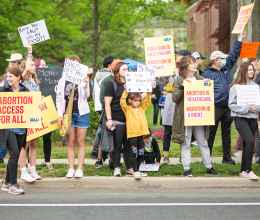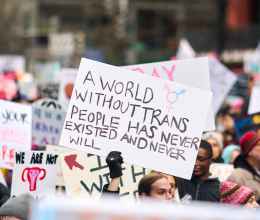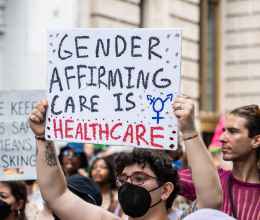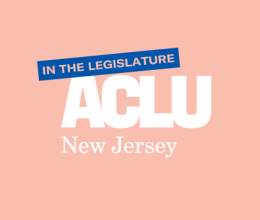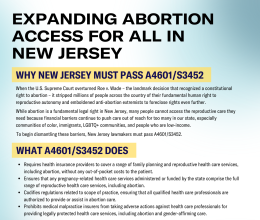Just last month, the New Jersey Department of Banking and Insurance (DOBI) announced that certain large employers in the state would be required to provide insurance coverage for abortion services. Though this new mandate from DOBI is an important step toward ensuring that all New Jerseyans can access the reproductive health care they need when they need it, more must be done to dismantle the barriers that push care out of reach for too many in our state. This is especially true for communities of color, immigrants, LGBTQ+ communities, young people, low-income people, and those living in rural areas.
This new guidance was made possible by the passage of the Freedom of Reproductive Choice Act in January 2022 that codified the right to reproductive autonomy, including abortion, into state statute and reinforced state constitutional protections. But one of the most restrictive barriers to abortion care is cost. The average cost of a first-trimester abortion in the United States is $550 – an unexpected healthcare cost that many Americans cannot afford. These costs increase drastically later in pregnancy.
Additionally, difficulties in finding a facility or clinic that provides abortion care can also impede access. Abortion facilities are closing at a concerning rate in New Jersey. Seven facilities closed between 2017 and 2021, leaving only 43 facilities to provide care for the nearly 2 million people in the state who may seek it. As more facilities and clinics close, it is likely that the distance a patient must travel to access care will increase. Now that 33% of New Jersey counties do not have a clinic that provides abortion care, patients must travel greater distances to access the care they need while facing increased financial and logistical hurdles.
Ensuring that New Jersey prioritizes funding for abortion facilities and clinics is more crucial than ever. Attacks by anti-abortion extremists seeking to rescind approval for mifepristone, a safe and effective medication used for abortion and miscarriage management, will further restrict access to time-sensitive medication abortion across the country and disproportionally harm the communities most impacted by barriers to health care. And New Jersey must increase support for and expand the number of facilities that provide abortion care so that patients can safely, easily, and affordably access the healthcare they need, whether they be from this state, or from one of the 13 states across the country that have banned abortion since the devastating ruling overturning Roe v. Wade.
States like New Jersey that protect the legal right to an abortion now play an even more critical role in providing care. The impact of attacks from emboldened anti-abortion extremists can mean being forced to carry a pregnancy against your will, face poverty, stay with an abusive partner, or miss economic and career opportunities.
The ACLU of New Jersey remains committed to ensuring reproductive health care, including abortion, is accessible for all New Jerseyans regardless of race, gender identity, sexual orientation, immigration status, income, or insurance. But since June 2022, the Reproductive Equity Act has been stalled in the New Jersey Legislature. This bill represents the immediate action needed to remove barriers that stand in the way of accessing the fundamental right to abortion care and ensure that all people who can become pregnant in our state can get the care they need.
By making the Reproductive Equity Act law, New Jersey can guarantee that abortion is not just legal, but accessible and affordable for all.
At a time when millions of people across the country are being stripped of their fundamental human right to make decisions about their lives and bodies, New Jersey can and must be a leader in ensuring that the right to abortion care is accessible and equitable for all who need it.
New Jersey lawmakers must immediately advance and sign the Reproductive Equity Act into law. Anything less is unacceptable. So, when you vote this fall, vote for reproductive freedom – and continue to hold elected officials accountable after Election Day.
This piece was originally published by USA Today Network New Jersey.

